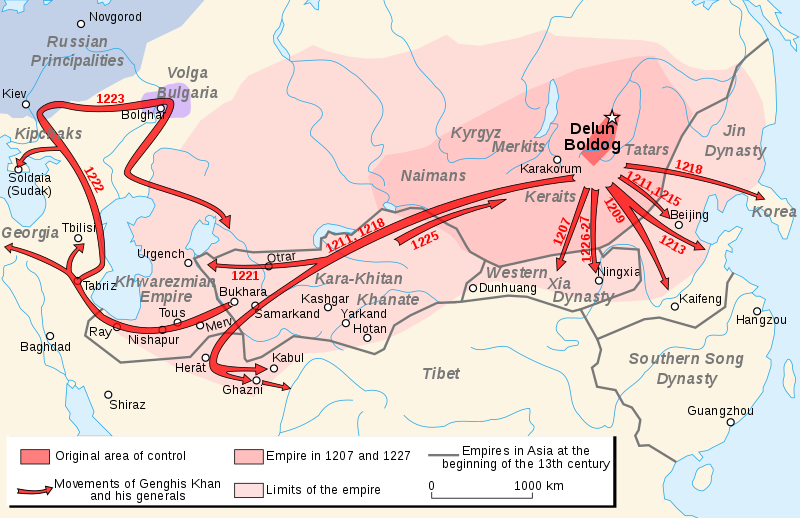
Map of the Campaigns of Genghis Khan (Illustration) World History Encyclopedia
The son of a tribal leader, in 1370 Timur became an in-law of a direct descendant of Genghis Khan, when he destroyed the army of Husayn of Balkh. After the battle, he took Husayn of Balkh's widow, Saray Mulk-khanum (daughter of Qazan, the last Chaghatai Khan of Mawarannah, into his harem as his fourth wife.

ALEXANDER VS TIMUR VS GENGHIS KHAN YouTube
"Timur's massacres were more spectacular affairs than those of the [earlier] Mongols," writes Peter Jackson in From Genghis Khan to Tamerlane, his heavyweight new study of the period between.
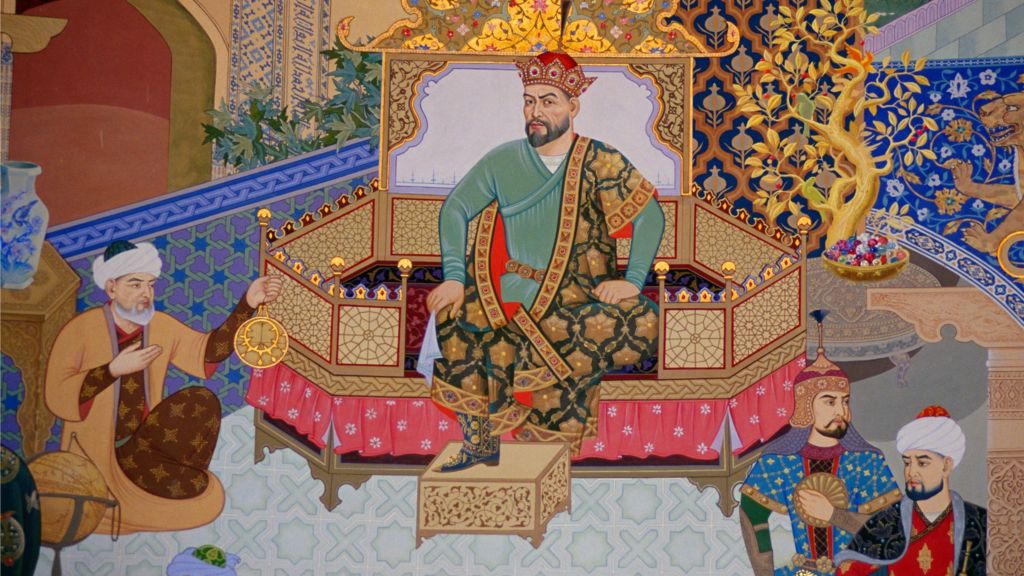
7 Fakta Timur Lenk, Keturunan Genghis Khan yang Kekejamannya Melebihi Sang Kakek Boombastis
Even though there's no evidence of him being a direct descendant of Genghis Khan, or Genghis Khan, he views himself as the successor, he wants to recreate the great Mongol Empire. By the time of Timur's death, the Timurid Empire encompasses much of Persia, central Asia, the Caucasus and the Middle East.. Now once Timur dies in 1405, you can.

Genghis Khan Family Tree in 2020 Family tree, Genghis khan, Genealogy crafts
Born in 1336, near Kesh in modern-day Uzbekistan, Timur was a product of the Turko-Mongol fusion. He descended from an aristocratic Mongol clan, but he was raised as a Muslim and spoke a Turkic language. A native to Transoxiana, he could not assert Genghis-Khanid legitimacy. Thus, he could not take the title of khan in his own right.

The Prolific Love Life of Genghis Khan History of Yesterday
Tamerlane (1336-1405) (Turkish Timur Leng, 'Timur the Lame') Mongol conqueror, b. Uzbekistan. He claimed descent from Genghis Khan. By 1369, Tamerlane conquered present-day Turkistan and established Samarkand as his capital. He extended his conquests to the region of the Golden Horde between the Caspian and Black Seas.

Was Babur Descended From Genghis Khan & Timur? YouTube
Babur ( Persian: بابر, romanized : Bābur, lit. 'tiger/panther'; Persian pronunciation: [bɑːbʊr]; 14 February 1483 - 26 December 1530; born Zahīr ud-Dīn Muhammad) was the founder of the Mughal Empire in the Indian subcontinent. He was a descendant of Timur and Genghis Khan through his father and mother respectively.
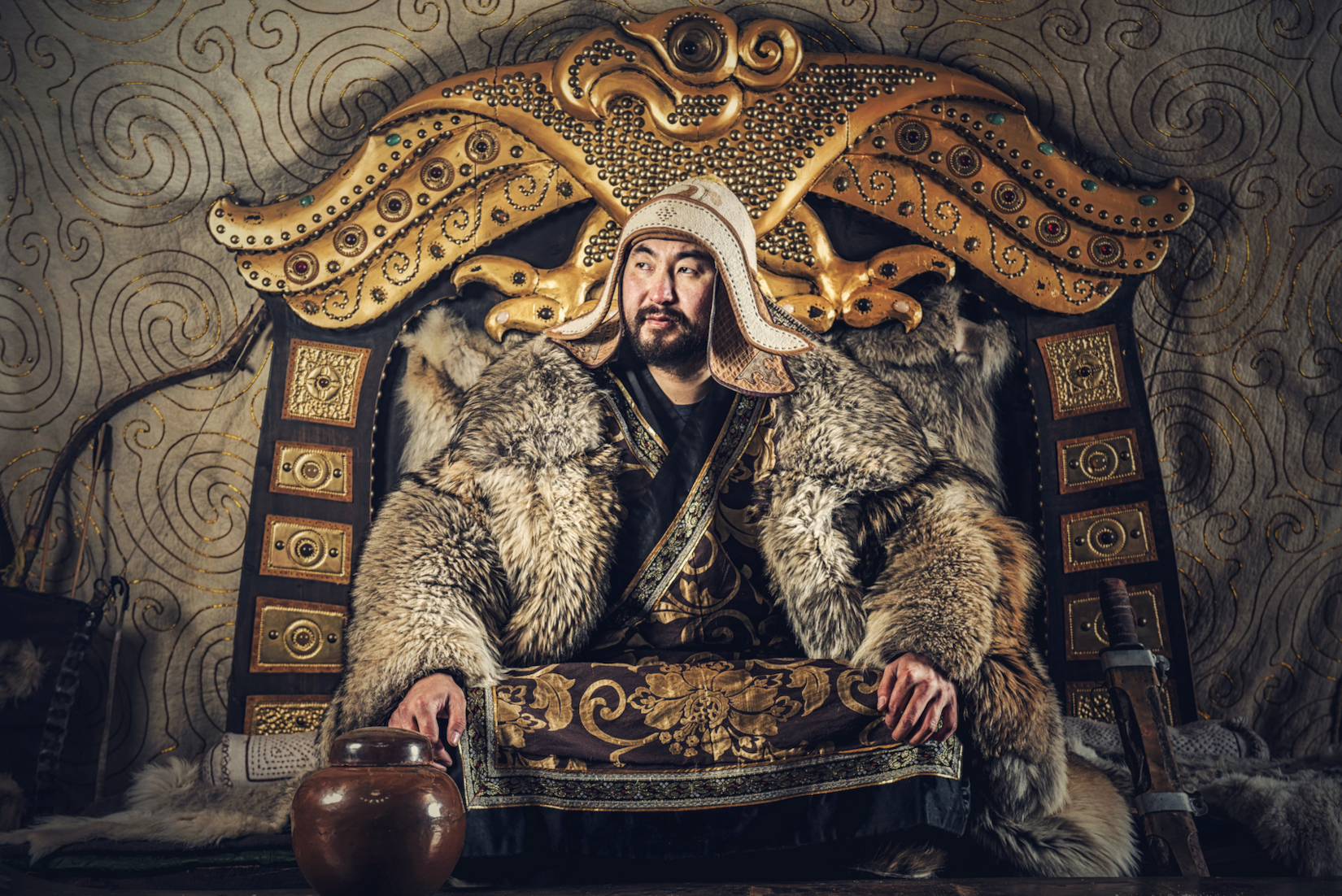
THE TRUE ORIGIN OF THE MONGOLS? Oxford Alumni
Timur , or Tamerlane or Tamburlaine, (born 1336, Kesh, near Samarkand, Transoxania—died Feb. 19, 1405, Otrar, near Chimkent), Turkic conqueror of Islamic faith whose conquests reached from India and Russia to the Mediterranean Sea.Timur took part in campaigns in Transoxania with Chagatai, a descendant of Genghis Khan. (Timur Lenk, or Tamerlane, means "Timur the Lame," reflecting the.

From Temüjin to Genghis Khan History of International Relations
Table of Contents Timur While the Golden Horde was beginning to enter its long decline in the late 14th century, the demise of Chagataid rule in the area between the Amu Darya and Syr Darya was taking place as a result of the rise of Timur. Under Timur's leadership the Turko-Mongol tribes located in the basins of the two rivers were first united.

FileGenealogical Relationship between Timur and Genghis Khan.png Wikimedia Commons
The Timurid dynasty ( Persian: تیموریان ), self-designated as Gurkani ( Persian: گورکانیان, romanized : Gūrkāniyān ), was a Sunni Muslim [1] dynasty or clan of Turco-Mongol origin [2] [3] [4] [5] descended from the warlord Timur (also known as Tamerlane).

Genghis and Family
Battle In 1370 (some sources say 1369), Timur decided to attack Husayn at Balkh. After crossing the Amu Darya at Termez his army surrounded the reconstructed city. Husayn's army came out of the city to attack Timur's men, perhaps suggesting that they were unhappy to find themselves being besieged.

Genghis Khan Family Tree YouTube
South Asia Timur the Great commanding the Siege of Balkh Timur defeats the Sultan of Delhi, Nasir-ud-Din Mahmud Shah Tughluq in the winter of 1397-1398, painting dated 1595-1600 My principal object in coming to Hindustan…has been to accomplish two things.

Genghis Khan Ep94 Tomb of of Amir Timur, who built a tower of Mongol skulls Tareekh YouTube
Timur was born on April 9, 1336, near the town of Kesh in modern-day Uzbekistan to a prominent family of the Barlas clan. The Barlas clan was at the forefront of internecine struggle for control in the fractured Mongol khanate formerly belonging to Genghis Khan's second-oldest son, Chagatai.
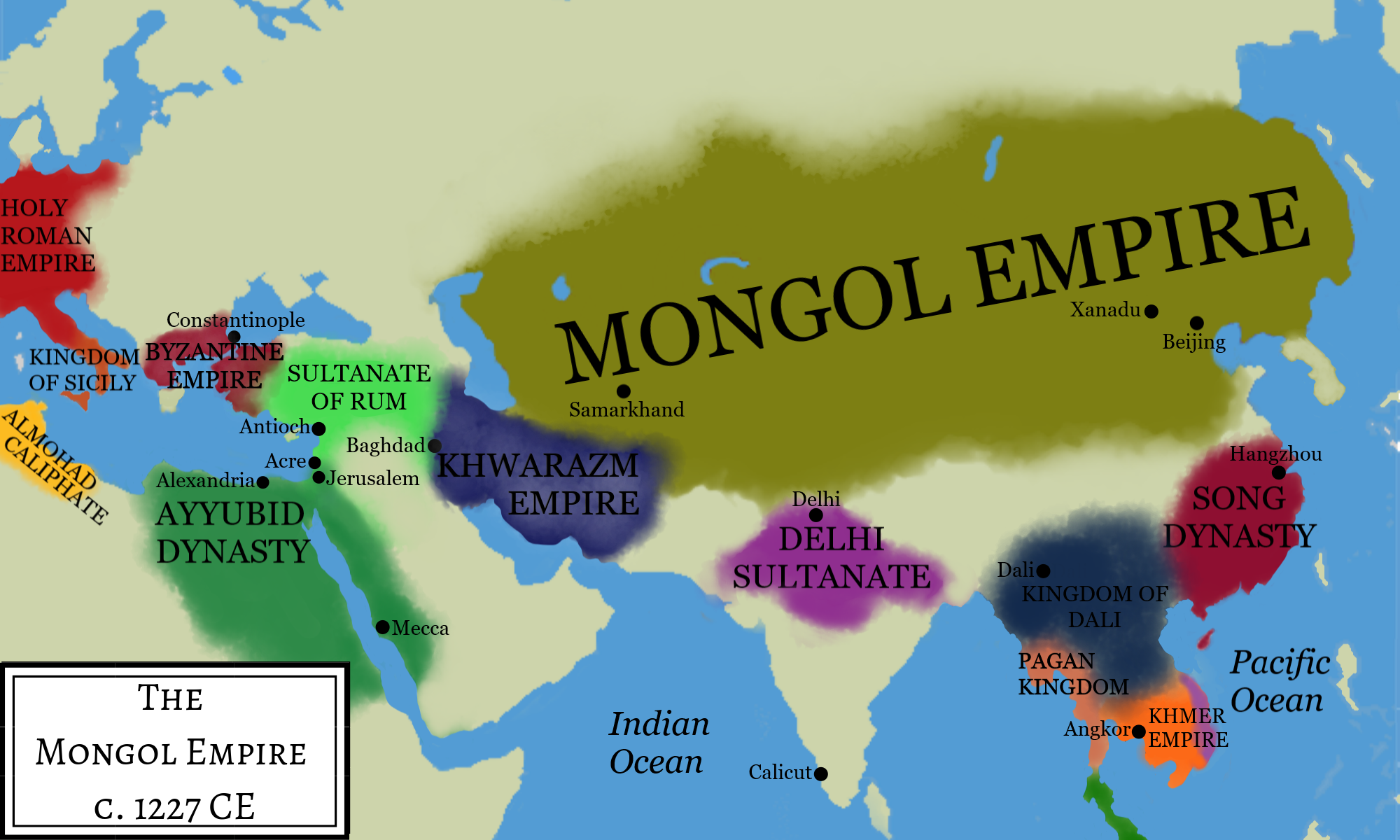
Genghis Khan's Empire (Illustration) World History Encyclopedia
Timur died in 1405 while on a campaign against the Ming Dynasty. He had built an empire that spanned the breadth of Central Asia. Unlike Genghis Khan, whose empire continued to expand after his death, the sons of Timur and their followers squabbled over succession, leading to a series of internecine battles.

How Babur is related to Timur and Genghis Khan? History Flame
Ancestry Genealogical relationship between Timur and Genghis Khan Through his father, Timur claimed to be a descendant of Tumbinai Khan, a male-line ancestor he shared with Genghis Khan. [19] Tumanay's great-great-grandson Qarachar Noyan was a minister for the emperor who later assisted the latter's son Chagatai in the governorship of Transoxiana.

Timur Lang Ep02 What Was The Relation Between Genghis Khan & Amir Taimur Lang History Of
Genghis Khan was a warrior and ruler of genius who, starting from obscure and insignificant beginnings, brought all the nomadic tribes of Mongolia under the rule of himself and his family in a rigidly disciplined military state. He then turned his attention toward the settled peoples beyond the borders of his nomadic realm and began the series of campaigns of plunder and conquest that.
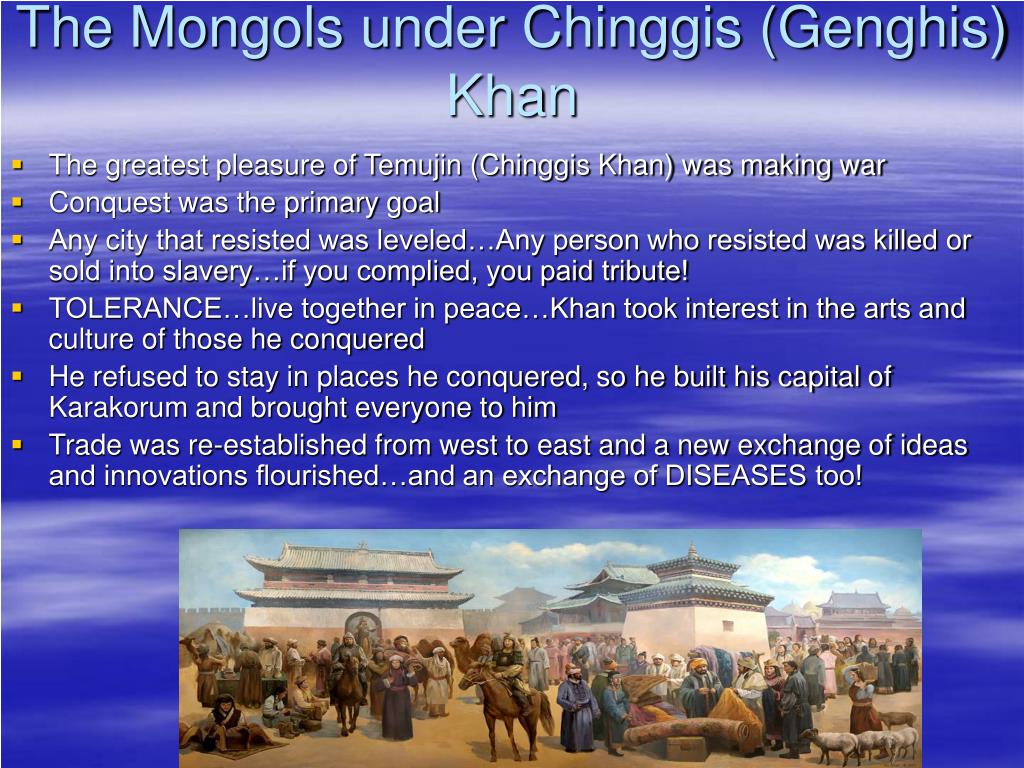
PPT The Last Great Nomadic Changes Chinggis Khan to Timuri Lang PowerPoint Presentation ID
The Metropolitan Museum of Art, New York; Rogers Fund, 1935, 35.64.4, www.metmuseum.org The Turkic conqueror Timur, who belongs to a Mongol subgroup known as the Barlas tribe, proclaims himself restorer of the Mongol Empire about 1370.Although his conquests are extensive, they are temporary and never match the extent of the empire under Kublai Khan.